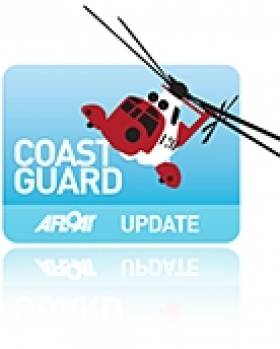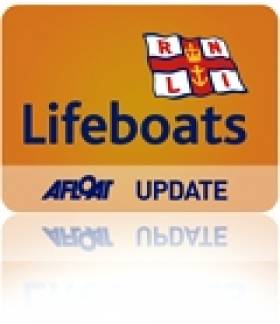Displaying items by tag: Valentia Coast Guard
The Minister for Transport, Tourism and Sport, Paschal Donohoe TD, today marked the commemoration of 100 years of services at the Irish Coast Guard Valentia Marine Rescue Sub-Centre (MRSC). A plaque unveiled by Minister Donohoe pays tribute to all the members of staff, both past and present, who have served in the centre over the past 100 years.
The Valentia MRSC has been in operation since 1914 and covers the South West and Western Atlantic coastal area. It has served as the first point of contact for the liners and cross Atlantic vessels transiting to and from Europe to America.
Speaking at the event, Minister Donohoe said: 'I am very happy to have an opportunity to pay tribute to all those who have served here in the past and also to those who continue to serve at Valentia Coast Guard, most of whom have been here for many years'.
"When I look around at this state-of-the-art Coast Guard coordination centre at Wireless Point, it is difficult to imagine that it was from this very location on the 7th May 1915 that some of the last messages to the ocean liner Lusitania were transmitted using only Morse Code. Through two world wars the station here continued to operate serving the maritime sector and providing a lifeline and communications link to shore. Looking over the records of the incidents handled here, there have been many notable incidents over the years.
"Our seas and inland waterways can bring tragedy as well as joy and we would like to remember here all those who have lost their lives in an around our coast and we acknowledge the sadness of that loss for their families and friends.
"The last two years have seen the busiest period in many years for the Coast Guard in terms of emergency responses as the figure for coordinated incidents reached 2,628, with the centre here in Valentia coordinating some 940 of these incidents.
"So it is in recognition of all these efforts and many others down through the years, that we have gathered here over 100 years after services commenced, to acknowledge the long and proud history of the station here in Valentia".
Fenit Lifeboat Recover Injured Woman from Great Blasket Island
At 03.41 this morning (Thursday 5 August 2010) Fenit RNLI lifeboat crew were requested to launch by Valentia Coast Guard to go to the assistance of a woman injured on the Great Blasket Island. The woman had fallen and sustained injuries to her leg and the Fenit RNLI all weather lifeboat was launched to recover her from the island and bring her ashore to Dingle to a waiting ambulance.
With no slipway or pier on the island and extremely shallow water at the landing point, the only way for the lifeboat crew to access the island was by launching the XP boat (a small inflatable boat carried onboard the lifeboat)
Four crew members went onto the island and made their way to the woman's house which was almost half a mile in and about 600 feet above sea level. The task was made more difficult due to the fact that the ground was extremely wet and slippery.
The woman was placed on a stretcher and carried back down the hill by the RNLI Fenit Lifeboat crew members. The stretcher was then placed across the xp boat and transferred to the lifeboat by the crew.
Commenting on the incident JP Brick of Fenit RNLI said, " This was a challenging callout for the lifeboat crew. The remote location made it difficult to access the island. The lifeboat crew needed to take a stretcher with them for the casualty and then return down the slippery terrain to the waiting XP boat. From there they travelled out to the waiting lifeboat and transferred the casualty onboard. This is where lifeboat crew training and equipment comes to the fore and the medivac was completed successfully."
On medical advice the casualty was brought to Dingle Marina where she was collected by ambulance and transferred to Tralee General Hospital
Related Safety posts
RNLI Lifeboats in Ireland
Safety News
Rescue News from RNLI Lifeboats in Ireland
Coast Guard News from Ireland
Water Safety News from Ireland
Marine Casualty Investigation Board News
Marine Warnings






























































